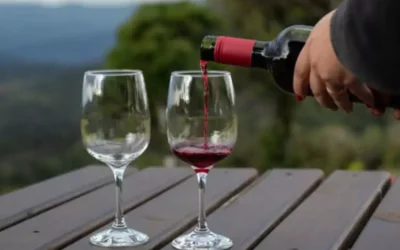Content
Electrolytes are minerals used by the body to control the muscles, blood chemistry, and organ processes. These electrolytes are found in blood, urine, and other fluids in the body. People who drink alcohol to excess on a regular basis are at increased risk for gastritis. Chronic alcohol exposure can weaken and erode the lining of your stomach.
- Coffee, tea, and soda contain caffeine, a natural diuretic.
- Studies also show that alcohol causes dehydration because of its diuretic properties.
- If you resolve the issue that caused dehydration and you get the correct amount of fluids, mild to moderate dehydration should go away in less than a day.
- These are only some of the effects of alcohol on the body.
Not drinking enough water throughout the day could be a cause of nighttime dehydration. To avoid this, it’s important to consistently sip on fluids both throughout the day and into the evening. Heat is a common cause of dehydration, particularly in older adults.
Conditions That Increase Your Risk of Dehydration
When you aren’t properly hydrated, your body’s natural response is thirst. You should respond to thirst right away by drinking fluids — preferably water. You can usually treat mild dehydration by drinking more fluids. It can be found in the aging parent who forgets to drink water or the fussy baby who can’t tell you they’re thirsty.
If these detectors reckon that you are dehydrated, they send a signal to the posterior pituitary gland, which starts pumping out ADH. The job of ADH is to stop you urinating, so you hang on to your precious water. After a night of drinking it’s important to make sure you rehydrate. Stoutz says the best way to hydrate is to alternate alcohol and water while you’re drinking.
Potential complications of untreated dehydration
Research from 2016 found that the sensation of a cool, carbonated beverage makes people think the beverage quenches thirst better. This can lead to drinking less additional liquid after having a drink such as a soda, which could make the effects of dehydration worse. Significantly high levels of caffeine intake may contribute to dehydration by stimulating the body to release more liquid than usual. Some people may also pair liquor with other drinks and ingredients in mixed drinks.
During hot weather, you need to increase your water intake during the day to make up for the extra fluids you lose through sweat. Symptoms of dehydration can appear at night and interfere with the duration and quality of your sleep. One obvious example is waking up in the middle of the night feeling thirsty.
4: Dehydration Reactions of Alcohols
Low blood pressure and rapid heart rate can indicate dehydration. When you’re having fun in the sun and are spending hours outdoors, it’s easy to forget to drink water. But if you are not hydrating enough, you could become dehydrated. It is important to note that having higher blood sugar from consuming very sugary drinks https://ecosoberhouse.com/ may encourage the body to eliminate the excess sugar but may not necessarily cause dehydration. Dehydration may also impair blood sugar response in some, such as those with type 2 diabetes. Research from 2017 found that people with diabetes who had 3 days of low water intake had an impaired blood glucose response.
- Drinks containing high amounts of alcohol, caffeine, and sugar are most likely to perform as diuretics in the body and promote dehydration.
- Alcohols like whiskey and brandy have high levels of congeners, including tannins and acetaldehyde.
- The alcohol content of beer can vary widely but typically ranges from 2–8% alcohol by volume (ABV).
The more sweat you produce, the more evaporation there is, and the more you’re cooled off. Sweating also hydrates your skin and maintains the balance of electrolytes in your body. USA TODAY is exploring the questions you and others ask every day. Head to our Just Curious section to see what else we can answer for you. Many diseases or disorders that cause fever can lead to dehydration.
Yes, you can prevent dehydration by keeping track of how much fluid you drink. One way to make sure you’re properly hydrated is to check your pee. Alcohol-induced dehydration is more likely to occur if an individual drinks alcohol on an empty stomach or does not drink enough non-alcoholic fluids while consuming alcohol. People who are already at risk of dehydration should avoid or limit their alcohol consumption. You can help prevent dehydration by drinking plenty of water throughout the day and taking electrolytes if you start seeing early signs of fluid loss.
Your urine may be sweet smelling and it may be accompanied by weight loss. If you take diuretics, antacids, laxatives and blood pressure medication, they may be designed to flush water and electrolytes out of your body. So, you’ve been trying to drink more water, but you’re still feeling dehydrated. You can also pair the listed drinks with plenty of water throughout the day to help you stay hydrated. In another study, thirsty adults perceived a cold carbonated beverage to be more thirst-quenching than water.
“Diabetes is a condition characterized by high blood sugar levels due to the body’s inability to produce or properly use insulin,” says Parnacott. He explains how the metabolic condition could stimulate dehydration in two ways. According to the National Institute on Alcohol Abuse and Alcoholism, alcohol can suppress the release of the hormone vasopressin, which does alcohol dehydrate you acts to hold onto water in the body. That’s why the phrase “break the seal” exists, because alcohol causes the urine floodgates to open, and it seems like much of your night out is spent in the restroom. And if you’re feeling that pounding headache, excessive thirst or sluggishness the following day, these are common hangover symptoms that indicate dehydration.


